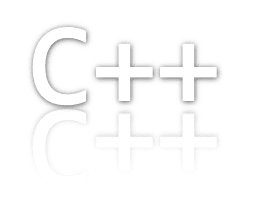C++ status at the end of 2015, a user's view -- Bartlomiej Filipek
 A lot has happened in C++ in 2015! As we close out the year, here's a retrospective from an experienced C++ developer:
A lot has happened in C++ in 2015! As we close out the year, here's a retrospective from an experienced C++ developer:
C++ status at the end of 2015
by Bartlomiej Filipek
From the article:
Maybe I’ll be boring with this note, but again I need to write that this was another good year for C++! Here’s a bunch of facts:
- Visual Studio 2015 was released with great support for C++14/17 and even more experimental features.
- Long-awaited GCC 5.0 was released at the beginning of the year.
- C++ gained a huge boost is popularity around July, 3rd stable place in the Tiobe Ranking.
- At CppCon 2015 there were some really important announcements made.
- C++17 seems to be just around the corner!
See my full report below...


 Discover a functionnality of Visual Studio:
Discover a functionnality of Visual Studio: